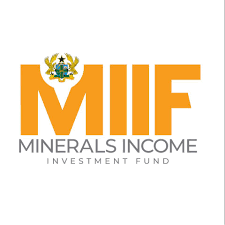The High Street Journal has announced an ambitious six-month investigative series examining how Ghana’s major public investment funds manage billions of cedis in national wealth, from infrastructure projects to mineral royalties and education financing.
The investigation, titled “Tracking the Money: Ghana’s Investment Funds Under the Spotlight,” will scrutinize the Ghana Infrastructure Investment Fund (GIIF), Minerals Income Investment Fund (MIIF), Ghana Education Trust Fund (GETFund), Road Fund, and petroleum revenue accounts. Each fund controls substantial public resources but faces persistent questions about transparency and impact.
GIIF was capitalized with $345 million anchor equity by the Government of Ghana in 2014, with a mandate to identify, develop, invest, mobilize and manage investments in a diversified portfolio of infrastructure assets for national development. Yet more than a decade later, many Ghanaians struggle to identify tangible outcomes from these investments.
The timing proves particularly relevant given recent developments. MIIF’s financial statements are currently undergoing a comprehensive audit following recent media reports alleging financial irregularities within the Fund. Additionally, government plans to amend the MIIF Act to ensure 80 percent of mineral royalties originally maintained by MIIF are transferred to the Consolidated Fund for infrastructure development.
The investigative series will examine each fund’s origins, mandates, and projects financed over the years. Rather than focusing solely on financial data, the journalism team plans to connect policy decisions to real-world impact through human stories, including students whose scholarships arrived late, traders stranded on neglected roads, and miners watching gold flow from their communities without visible local benefits.
MIIF is mandated by the Minerals Income Investment Fund Act, 978 (as amended) to maximize the value of dividend and royalties income accruing to the Republic of Ghana in a beneficial, accountable and sustainable manner. However, questions persist about how effectively these mandates translate into measurable public good.
The investigation acknowledges potential obstacles, including political pushback and reluctant officials. However, the publication emphasizes its commitment to verification before publication, balanced reporting, and evidence-based criticism rather than political attacks.
Public investment funds represent more than government programs; they embody national priorities and commitments to future generations. GIIF focuses on infrastructure development, MIIF manages mineral wealth, GETFund finances education, the Road Fund maintains transportation networks, and petroleum funds balance savings with current spending needs.
After ten years of operation, GIIF claims to have leveraged its initial seed fund to partner with Development Finance Partners and successfully execute projects, now working with the 24-Hour Economy Secretariat as its infrastructure financing partner. The investigation will examine these claims against actual project delivery and financial returns.
The series plans to trace how public money flows through these institutions, identifying where funds achieve their stated objectives and where they fall short. Each fund operates under different legislation, governance structures, and accountability mechanisms, creating a complex landscape that most citizens find difficult to navigate.
For MIIF specifically, recent scrutiny has intensified. The fund emphasizes that transparency and accountability are core principles underpinning all operations, with full commitment to maintaining the highest standards of integrity. The investigation will test these assertions against operational reality.
The journalism project positions itself as citizen-focused accountability rather than adversarial reporting. By following where public funds go and documenting their impact, the series aims to empower Ghanaians with information about how their collective wealth is managed.
Questions the investigation seeks to answer include: How much have these funds actually earned? Which projects received financing and why? What returns have investments generated? How do governance structures ensure accountability? And most critically, how do these funds improve ordinary Ghanaians’ lives?
The announcement frames accountability not as accusation but as civic right. Public funds belong to citizens, making scrutiny both appropriate and necessary. Without transparency, the publication argues, these institutions risk becoming invisible while their absence of impact remains highly visible in delayed infrastructure, inadequate education funding, and deteriorating roads.
Each monthly installment will feature deep-dive investigations, simplified explainers for general audiences, expert commentary, and stories connecting policy decisions to everyday Ghanaian experiences. The publication invites reader participation, encouraging citizens to share experiences and ask questions throughout the investigation.
Whether this investigative series produces meaningful accountability depends partly on how fund managers and government officials respond. Transparency requires cooperation, but even silence can prove revealing when public institutions avoid legitimate scrutiny.
For Ghana’s investment funds, the next six months may bring uncomfortable questions. For citizens seeking answers about how their money is managed, the investigation offers a sustained examination of institutions that control billions yet often operate beyond public understanding.
Source: newsghana.com.gh











